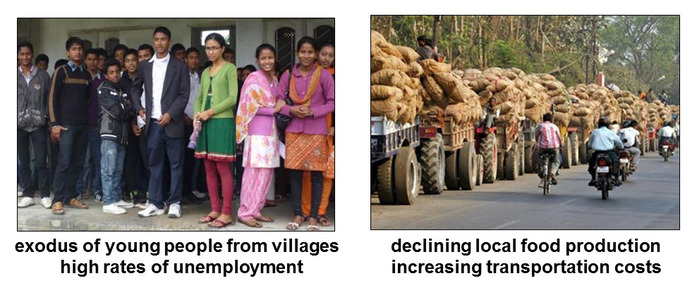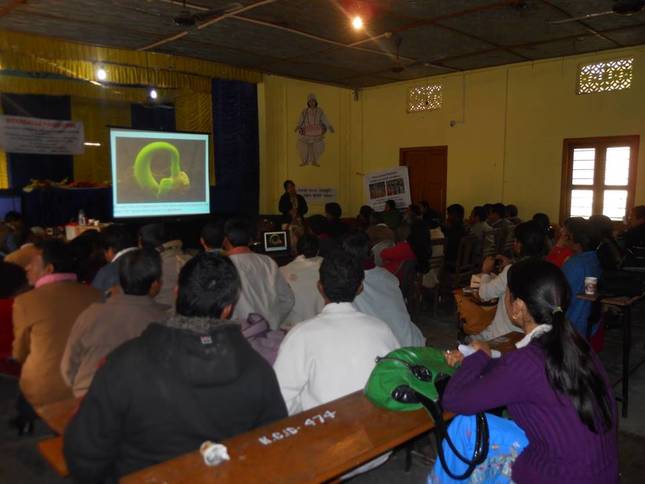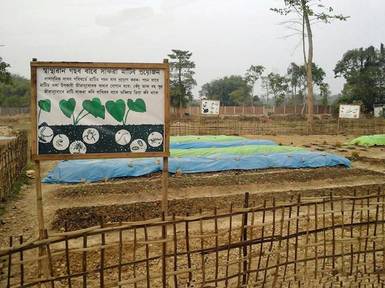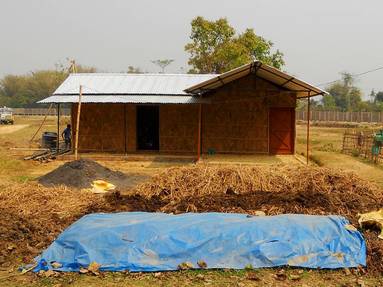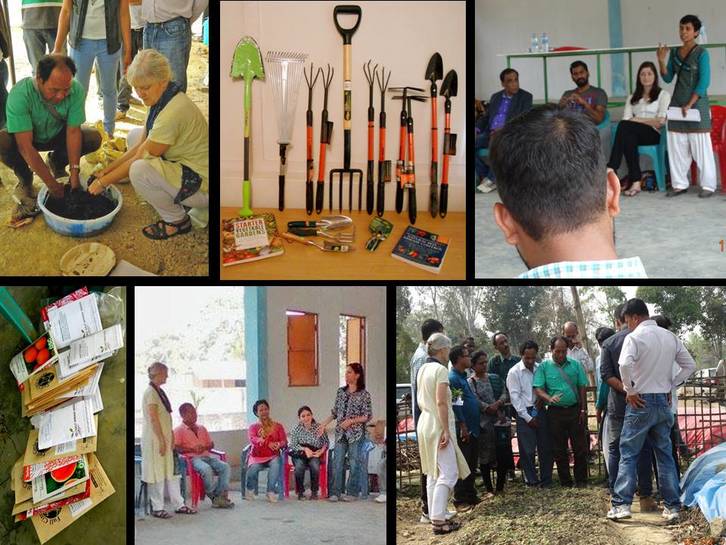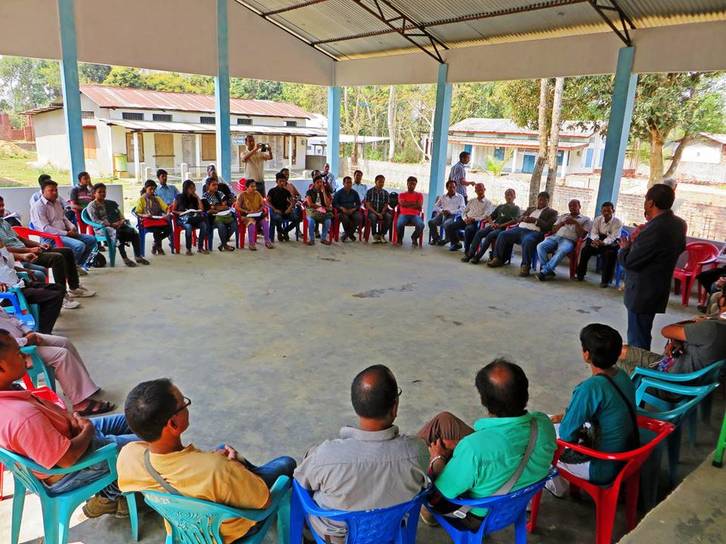GET GROWING!
....an Exciting New Initiative in Support of Sustainable Organic Agriculture
and Tea Cultivation in Assam, India
....an Exciting New Initiative in Support of Sustainable Organic Agriculture
and Tea Cultivation in Assam, India
|
Project Description:
With support from Fertile Ground and our great of partners, a “learning garden” and training centre was created at Kakojan College, about 15 km. east of Jorhat, a major agricultural and tea growing area in Assam. Local vegetables were grown on the site - and orientation and training in cultivation, marketing and production of organic inputs were provided by resource people familiar with the principles of sustainable organic farming. There is small plot of land adjacent to the site for organic tea cultivation. Our hope is that sometime in future it may be possible to erect a small-scale processing unit to promote the cultivation, production and marketing of organically-grown tea by the area’s small tea growers. |
|
Kakojan College has expressed interest in launching a certificate course in Organic Farming in future, and a number of options for making this possible are being explored.
The project was carried out in partnership with North East Affected Area Development Society (NEADS). Financial support has come from Rotary Clubs in District 5020, Jorhat Rotary Club (District 3240), and donors in Canada and the US. Technical support was provided by Fertile Ground: East/West Sustainability Network, a voluntary organization from Vancouver Island, Canada that has worked to encourage sustainable and traditional farming and tea cultivation in Assam for the past 17 years.
The project was carried out in partnership with North East Affected Area Development Society (NEADS). Financial support has come from Rotary Clubs in District 5020, Jorhat Rotary Club (District 3240), and donors in Canada and the US. Technical support was provided by Fertile Ground: East/West Sustainability Network, a voluntary organization from Vancouver Island, Canada that has worked to encourage sustainable and traditional farming and tea cultivation in Assam for the past 17 years.
Why this project is important:
These days, there are few local employment opportunities for students graduating with degrees in fields such as Computer Technology, Engineering, English or Political Science. As a result, many young people from farming families are moving to the cities or leaving the state, and local food production is steadily declining.
These days, there are few local employment opportunities for students graduating with degrees in fields such as Computer Technology, Engineering, English or Political Science. As a result, many young people from farming families are moving to the cities or leaving the state, and local food production is steadily declining.
The Assam state government, Tea Board of India and a number of Indian NGO’s have launched new programs to promote more environmentally-sound agricultural practices. Unfortunately, many of these programs face challenges achieveing their goals because of:
- the lack of affordable, locally available organic inputs, and
- a shortage of trainers and outreach workers with practical, hands-on skills
Intended beneficiaries: Students, farmers, small tea growers, families from the adjacent area, self-help group members, educators and local NGO’s.
- the lack of affordable, locally available organic inputs, and
- a shortage of trainers and outreach workers with practical, hands-on skills
Intended beneficiaries: Students, farmers, small tea growers, families from the adjacent area, self-help group members, educators and local NGO’s.
How this project will benefit the community in need: Participants will become familiar with the principles and practices of organic farming, explore a range of self-employment opportunities, and develop skills which will help meet the growing demand for knowledgeable farm, tea garden and educational outreach workers.
To ensure ongoing sustainability of the project, an annual operating budget and a plan identifying potential income-generating opportunities will be developed. This may include activities such as the sale of local organically-grown vegetables, fruits, rice and tea, the production and sale of natural soil amendments and insect repellents, and conducting tours and training to farmers, school children and members of local self-helps groups.

